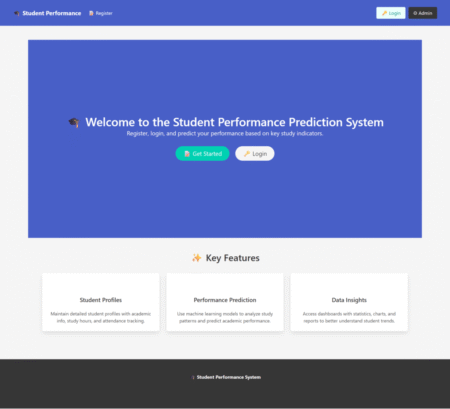 Artificial Intelligence (AI) is no longer an experimental technology it has become a strategic driver of enterprise competitiveness. A recent McKinsey study revealed that 55% of companies have already adopted AI in at least one business function, and leaders are doubling down on scaling initiatives across their core enterprise software systems.
Artificial Intelligence (AI) is no longer an experimental technology it has become a strategic driver of enterprise competitiveness. A recent McKinsey study revealed that 55% of companies have already adopted AI in at least one business function, and leaders are doubling down on scaling initiatives across their core enterprise software systems.
But here’s the challenge: AI adoption often stalls because enterprises lack a structured transformation roadmap. Unlike traditional Digital Transformation Consulting, AI transformation isn’t just about digitization or migrating to the cloud it’s about embedding intelligence, automation, and predictive power into the very fabric of enterprise applications.
What is AI Transformation?
AI Transformation is the process of integrating artificial intelligence technologies, such as machine learning, natural language processing (NLP), computer vision, predictive analytics, and generative AI, into enterprise software systems and workflows to drive efficiency, automation, and strategic decision-making.
It goes beyond process digitization by:
- Embedding AI into ERP, CRM, HRMS, and SCM systems.
- Automating repetitive workflows with intelligent agents.
- Powering decision-making with real-time predictive insights.
- Building adaptive systems that evolve as data grows.
In simple terms, AI Transformation = Enterprise Modernization + Intelligence Layer.
Why Enterprises Need AI Transformation
Without AI, enterprise systems remain static, reactive, and siloed. With AI, they become dynamic, proactive, and integrated.
Benefits of AI Transformation
- Efficiency Gains – Automate up to 60% of repetitive processes.
- Cost Reduction – Optimize cloud resources, workforce allocation, and operations.
- Revenue Growth – Enable hyper-personalization and predictive sales.
- Risk & Compliance – Improve fraud detection, anomaly monitoring, and audit trails.
- Employee Productivity – Free staff from mundane tasks to focus on strategy.
AI is no longer optional it’s a board-level agenda for enterprises aiming to stay competitive.
AI Transformation Checklist for Enterprise Software Projects
1. Define Clear Business Outcomes
- What KPIs should AI improve cost, speed, customer retention, and compliance?
- Set measurable goals (e.g., reduce invoice processing time by 40%).
2. Assess Organizational Readiness
- Appoint an AI PMO or Chief AI Officer.
- Run AI literacy workshops for leadership and teams.
- Create a culture of data-first decision-making.
3. Evaluate Data Maturity
AI is only as good as its data.
- Conduct a data audit for completeness, consistency, and accessibility.
- Break down silos to create a unified data platform.
- Ensure compliance with GDPR, HIPAA, and SOX, depending on industry.
4. Build the Right Technology Stack
- Adopt cloud-native AI platforms (AWS SageMaker, Azure AI, GCP Vertex).
- Use APIs to connect legacy ERP/CRM systems.
- Implement MLOps pipelines for scalable deployment.
At this stage, partnering with an expert in AI Development Services ensures your AI systems are production-ready and scalable.
5. Establish AI Governance & Ethics
- Define bias-free, transparent, and auditable AI practices.
- Create dashboards for explainability.
- Form cross-functional AI governance committees (IT, Legal, Compliance).
6. Financial Planning & ROI Analysis
- Balance pilot testing with enterprise-wide scalability.
- Plan for TCO (total cost of ownership): software + cloud + maintenance.
- Use scenario modeling to forecast long-term ROI.
Recommended read: Java Data Types for High-Performance Coding: A Complete Reference
AI Transformation Cost Breakdown
| Stage | Typical Cost Range | What’s Included | Suitable For |
|---|---|---|---|
| Pilot / Proof of Concept | $50,000 – $150,000 | One AI use case, limited dataset, prototype | Firms testing AI feasibility |
| Mid-Scale Deployment | $250,000 – $750,000 | Integration into 2–3 apps, dashboards, predictive ML | Enterprises modernizing critical apps |
| Enterprise-Wide Rollout | $1M – $5M+ | AI across ERP, CRM, HR, SCM, governance, and automation | Global enterprises (5K+ employees) |
Costs depend on data maturity, compliance, and AI model complexity. For finance or healthcare, AI governance adds 20–30% additional costs.
AI Transformation vs Traditional Digital Transformation
| Factor | Digital Transformation | AI Transformation |
|---|---|---|
| Goal | Digitize & modernize systems | Embed intelligence into workflows |
| Tech Focus | Cloud migration, ERP, CRM upgrades | AI/ML models, predictive analytics, GenAI |
| Business Value | Efficiency, cost savings | Decision intelligence, new revenue streams |
| Complexity | Moderate | High (requires data, governance, AI models) |
Industry Use Cases of AI Transformation
- Banking & Finance – Automated KYC, fraud detection, robo-advisory.
- Healthcare – AI diagnostics, patient triage, drug discovery.
- Retail & E-commerce – Personalized recommendations, dynamic pricing.
- Manufacturing – Predictive maintenance, supply chain optimization.
- Logistics – Route optimization, demand forecasting.
For a deeper dive into AI maturity, see our guide on Types of Artificial Intelligence.
Risks & Challenges in AI Transformation
- Data Silos: Poor data integration reduces AI effectiveness.
- Bias & Compliance Risks: Unchecked models may fail audits.
- High Initial Costs: ROI may take 12–24 months to materialize.
- Talent Shortage: Data scientists and ML engineers are in high demand.
Best Practices for CEOs, CIOs & CTOs
- Start small with low-risk, high-value pilots before scaling.
- Create AI Centers of Excellence (CoE) within the enterprise.
- Align AI investments with long-term business models.
- Monitor and audit AI systems regularly to avoid compliance pitfalls.
- Partner with vendors who provide explainable and ethical AI models.
Conclusion
AI Transformation is not just another IT project it’s a strategic shift in enterprise operating models. By embedding AI into ERP, CRM, and core enterprise applications, organizations unlock automation, decision intelligence, and new revenue opportunities.
CIOs and CEOs must lead with a structured AI transformation framework, combining governance, technology, and ROI-driven strategies.
Partnering with Inexture Solutions, a trusted expert in enterprise modernization, ensures your AI initiatives deliver measurable outcomes. Our experience in AI adoption, Digital Transformation Consulting, and enterprise systems modernization makes us the right partner for building resilient AI-first enterprises.
The post AI Transformation Checklist for Enterprise Software Projects appeared first on Inexture.
Source: Read MoreÂ



